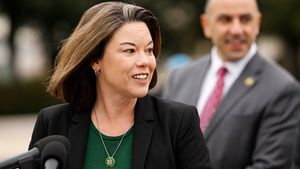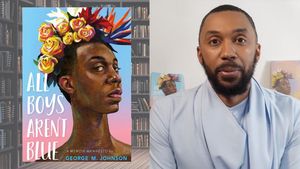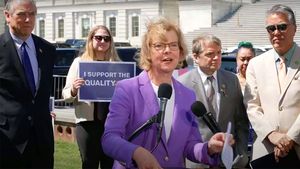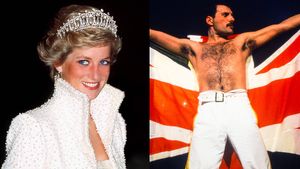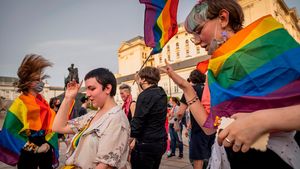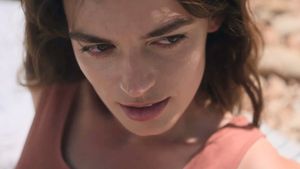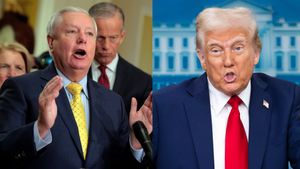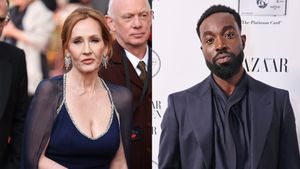This piece is an excerpt from American Teenager, a groundbreaking book from longtime LGBTQ+ journalist Nico Lang chronicling the lives of seven families of trans youth in seven different states. The book is intended to combat dehumanizing myths and misconceptions about trans youth by allowing young people and the people who love them to speak their truth, telling us about themselves in their own words. You can purchase a copy here.
In this passage, Mykah, a Black, genderfluid theater kid, is dealing with mental health struggles while living with their mother, Dawn, in rural West Virginia. The only place Mykah feels safe and accepted as their full self, they say, is at summer camp.
Mykah, now several weeks into her cloister, is spending her afternoon rewatching Sex and the City, and it’s easy to understand her fixation on a show about fashionable girls about town. Sex and the City is the platonic ideal of her New York fantasy, where men are in endless supply and friends are forever. Mykah is currently binge watching the HBO series’s sixth season, during which the nouveau riche aspirant Charlotte has divorced her impotent ex-husband, Trey, just to stumble into a hasty cohabitation with her ill-mannered divorce attorney, and bon vivant Samantha has begun dating a wannabe actor many years her younger. Uptight attorney Miranda is in an interracial romance with the hunky team doctor for the New York Knicks, while narcissistic sex columnist Carrie is upset that her $500 shoes were pilfered at a party.
Although Mykah has the brash pomp of a Samantha—with her all-eyes-on-me energy—she is a Carrie almost by necessity: Mykah would never let someone else be the main character. She hasn’t yet seen the 2021 reboot, in which Carrie and Samantha are no longer close, having long drifted apart, but I tell her not to rush into watching it, not wanting to spoil her cosmopolitan dream.
It’s difficult to say when exactly Mykah’s existential nosedive began, when her world became so small; she credits it, in part, to the early days of the pandemic, when she lost the daily socialization that was vital to her mental wellbeing. Although Mykah had often felt pigeonholed and tokenized by her peers—seen only for the color of her skin and the swish in her walk—being the most visibly queer person in school brought her a certain level of celebrity. Her fashion choices elicited no shortage of stares and side-eyes, but they also won her praise: The first time Mykah wore lipstick and mascara to school, she was terrified that she’d be taunted or shoved into the hallway lockers—that is, until some girls in class asked her to do their makeup for homecoming. That early embrace encouraged her to always be herself, unapologetically, sporting cat gloves to go to the supermarket and skimpy tank tops in all manner of weather conditions.
Mykah had always been a straight-A student (well, with the occasional B), but her grades began to slip in an all-virtual learning environment, just as the disappointments began to pile up. She struggled to get cast in shows that would broaden her portfolio, often forced into offensive parts: Would you be willing to do an ethnic dance? How about a Jamaican accent? In a knife twist of foreshadowing, Mykah hoped a local Kinky Boots production would change her luck; the role of Lola, a drag queen who helps to rejuvenate a struggling shoe factory by producing a line of high-heeled boots, seemed tailor-made for her. The actor Billy Porter, whose larger-than-life red carpet looks majorly influenced Mykah’s fashion choices, won a Tony Award in 2013 for his stirring performance in the Harvey Fierstein-penned musical. When Mykah didn’t land the part, it felt like there was something wrong with her and there always would be, that she suffered from incurable mediocrity. It was as if the casting directors had looked directly into her soul and recoiled with boredom.
But at the apex of Mykah’s pyre of woes is the recent and sudden realization of how very fragile her life is. If the fear of eviction looms large, it’s because she’s already been through it once before: Mykah and her mother were kicked out of their previous home last year, separated for months while they searched for a new place to live. Mykah was forced to stay with her older brother, and feeling suffocated in a house they shared with seven other people, disruptive questions flooded her mind: Would she ever truly be happy? Would life always be like this? “I had everything going for me and then it abruptly changed—this person that’s been in your life for the past eighteen years is suddenly not there,” she tells me as Carrie waxes poetic over a “woman’s right to shoes.” “No matter how good I do, it’s all overshadowed by negative things. I feel like there’s always this overwhelming cloud of negative energy.”
As we sit in her living room after the episode ends, Mykah’s competing traumas are palpable: Her box braids have begun to grow out, leaving a short Afro underneath a knotty web of frayed cords, about which she is extremely insecure. One of the many reasons that she rarely leaves home these days is that she doesn’t want others to see her this way. During one of Mykah’s few trips outside, a woman who specializes in styling Black hair approached her with a business card and the offer of help, but even at a kindly $100 discount, the cost was much too steep for the family’s tight budget.
The Mykah of February 2023 starkly contrasts with the person I met at camp: a plus-size Appalachian valley girl with scraggly spurts of facial hair, whose airy demeanor disguised a piercing intelligence. Mykah was both the camp’s queen bee and its conscience, leading the other youth in a two-part intersectionality workshop to teach them about issues facing people of color, including everything from structural racism to redlining; the latter, as she explained, refers to a system of rampant housing discrimination that kept Black families from moving to America’s then-novel suburbs in the 1950s. Some of Mykah’s peers had never met someone who was both Black and LGBTQIA+ before. West Virginia is America’s third least diverse state, with a population that is 94.4 percent Caucasian. If every single Black West Virginian lived in the same city, its population would still be half the size of Kanawha, the county that Charleston calls home.
Mykah admits that she was nervous when she and her mother first arrived at the camp two summers ago, unsure if she even wanted to get out of the car. This was August 2021, when the camp was about half its current size, and a small group of kids sat in the grass making friendship bracelets. They invited Mykah over to join them, but she was reluctant, thinking the gesture precipitous. We’re not friends! she thought to herself. But she was able to let her guard down when she spotted an unexpected vision among the grass: a face like hers. One of the first campers to arrive at that year’s AQYS had been Markus, whose billowing Afro wobbles every which way when he walks. Dawn waited in her truck while Mykah surveyed the landscape, deciding whether this place was the right fit for her, but after seeing Markus, she told her mother that it was OK to drive away. “I’m fine,” she said, with her trademark flippancy. “I see a brother.”
The ACLU of West Virginia created the camp to be a training ground for the next generation of young activists; by participating in storytelling workshops and know-your-rights trainings, tomorrow’s leaders could learn to organize and engage in political lobbying efforts. Mykah’s first camp featured a panel of out LGBTQIA+ elected officials led by Wheeling city councilwoman Rosemary Ketchum, the first (and to date only) transgender woman to hold public office in West Virginia. But while its overarching goal is to give young people tools and skills to bring back to their home communities, AQYS is also about letting LGBTQIA+ kids experience the queer camaraderie and belonging they might otherwise lack. The camp’s programming also includes canoeing, ropes courses, movie nights, pool parties, and all the little moments that can’t be planned in advance: impromptu late-night slumber parties, bonding over s’mores, and sharing secrets they never thought they’d ever be able to give to another person.
For Mykah, the camp was the only time that she had ever felt like anyone really listened to her or cared what she had to say, a place where her peers valued her input and were willing to learn from her unique experiences. So often in her life, Mykah has felt that she must hide herself away, that solitude is the only way to survive. Her father had forced her to play football when she was young in hopes of raising a “strong Black man,” she says, but she often broke off from the other students during games, making crowns out of flowers she picked off the field. At camp, Mykah didn’t have to code switch or worry about pleasing anyone; the space it provided encouraged her to express all parts of herself in their beauty, their rawness, and their contradictions. This was freedom, she thought: to wear what she wanted or talk in whatever pitch of voice she liked without being worried that she might literally be killed for it.
“I don’t think I’m ever truly my authentic self unless I’m home,” she tells me in her room as she burns incense, its peppery smell balancing her out. “I feel like I always have to be poised. I always have to be smarter. I don’t go to parties because as a Black, queer teenager, that’s not smart for me. My teenage experience is so different because I can’t do the other stuff that my peers do.”









